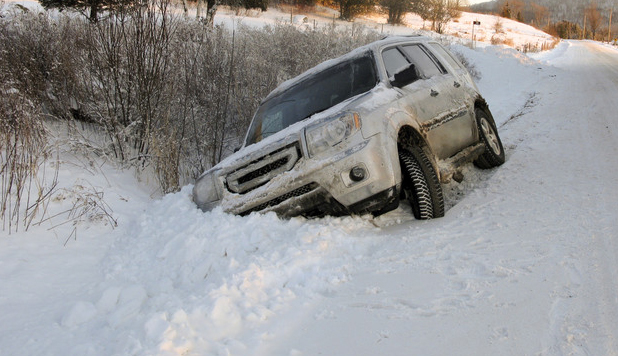LONG-DISTANCE TRAVELS IN THE WINTER
Our best tip; if you have to drive in winter conditions, Prepare for the worst! But if you can, stay home, fly or take a train.
Even if the roads are covered in snow and slush, it is still winter and the conditions are not the best for a heave 4 wheeled vehicle. Especially on long distances.
Here, 11 basic tips if you’re hitting the road in winter conditions:
- Be Prepared: Have your vehicle checked an Auto Repair facility before hitting the road.
- Check the Weather: Check the weather along your route and when possible, delay your trip if bad weather is expected.
- Stay Connected: Before hitting the road, notify others and let them know your route, destination and estimated time of arrival.
- If driving is risky: consider staying at home or postponing your trip until the weather clears. If this is not possible, proceed with caution and keep your radio tuned to a local station for ongoing weather advisories.
- Pack an emergency kit: This should include a shovel, extra windshield washer fluid, sand or kitty litter, fuel line antifreeze, a thermal blanket, extra clothing and footwear
and a first-aid kit. It is also a good idea to include water bottles, an extra supply of any necessary medications and an emergency food pack in the event you get stranded. (Pack foods that are filling but don’t require preparation such as sandwiches, fruit, energy bars, or a thermos of hearty soup or stew.) - Safe following distance: In bad weather be sure to put more distance between you and the vehicle in front of you.
- See and be seen: For better visibility, clear all snow from your vehicle before setting out. This includes the hood, roof, bumper
and lights. - Stay rested: Be alert and well rested before starting out on any road trip. Give yourself extra travel time in bad weather and whenever possible, don’t travel alone. And try to plan your trip so you avoid driving at night.
- If the roads are slippery: avoid using overdrive and cruise control. Slow down, and, as always, make sure your seat belt is secure. Also, once you’re on the road, keep a close eye on your gas gauge; it’s best not to let your tank get below half full.
- Always wear a seatbelt: In case of an accident, wearing your seatbelt can save your life.
- Air up your tires: Make sure tires are properly inflated. And check the tire pressure on your spare tire too.
There’s so many more tips and ideas to be safe. What are some of yours?
Drive safely this winter! Get your car checked before the season and double check that you have all the tools and supplies necessary in case of an accident. Craig’s Automotive Collision Center wants you to have a safe winter season on the road!

